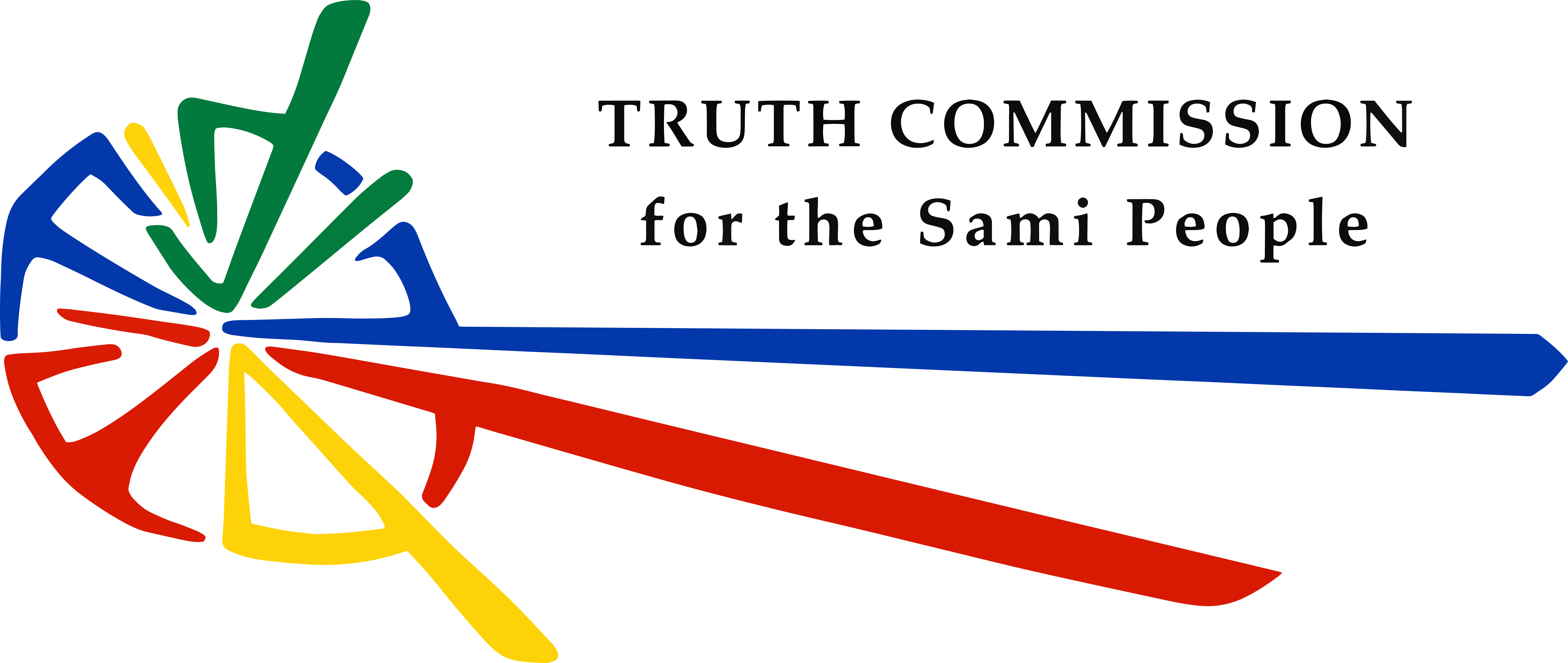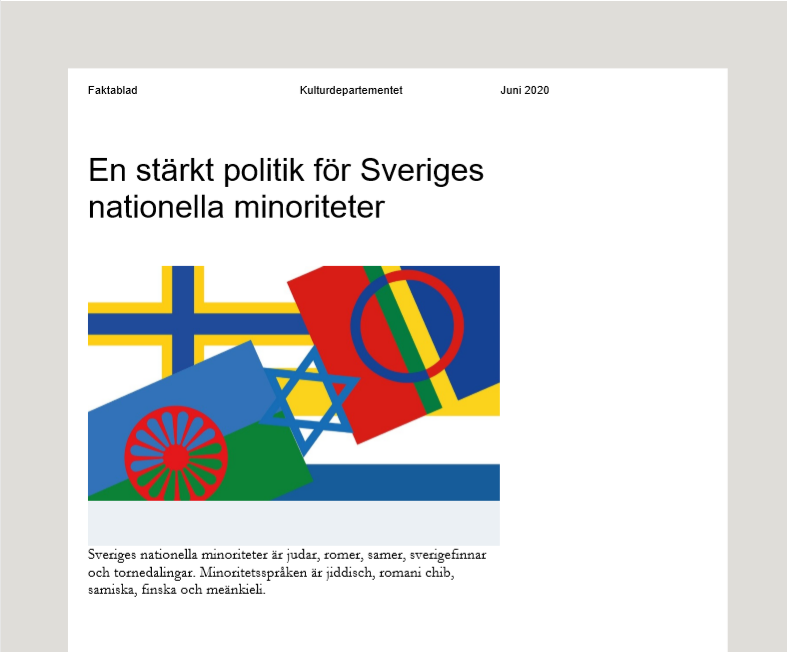In 2000, Sweden ratified the Council of Europe Framework Convention for the Protection of National Minorities and the European Charter for Regional and Minority Languages. In connection with this, minority policy was introduced as its own policy area. The objectives of Sweden’s minority policy are to protect national minorities, strengthen their opportunities for influence and help keep long-established minority languages alive.
Sweden must ensure compliance with the rights of national minorities, which are the result of international human rights commitments, among other things. The Minorities Act builds on Sweden’s commitments according to the Council of Europe Framework Convention for the Protection of National Minorities and the European Charter for Regional and Minority Languages.
The general provisions of the Minorities Act mean that national authorities have an explicit responsibility to ensure that the indigenous Sami people, and other national minorities, are able to preserve and develop their culture and identity, namely religion, language, traditions and cultural heritage. It is also their responsibility to give the indigenous Sami people and other national minorities real influence on issues that affect them.
Along with Finnish and Meänkieli, the Sami languages fulfil the requirements for historical geographic connection according to the language charter. A language is officially recognised as a minority language when a country ratifies the Council of Europe’s Minority Language Convention (also known as the European Language Charter) for the language. The Council of Europe monitors compliance with the conventions and makes recommendations on what actions need to be taken.
Read more about Swedish minority policy at Minoritet.se (in Swedish)

